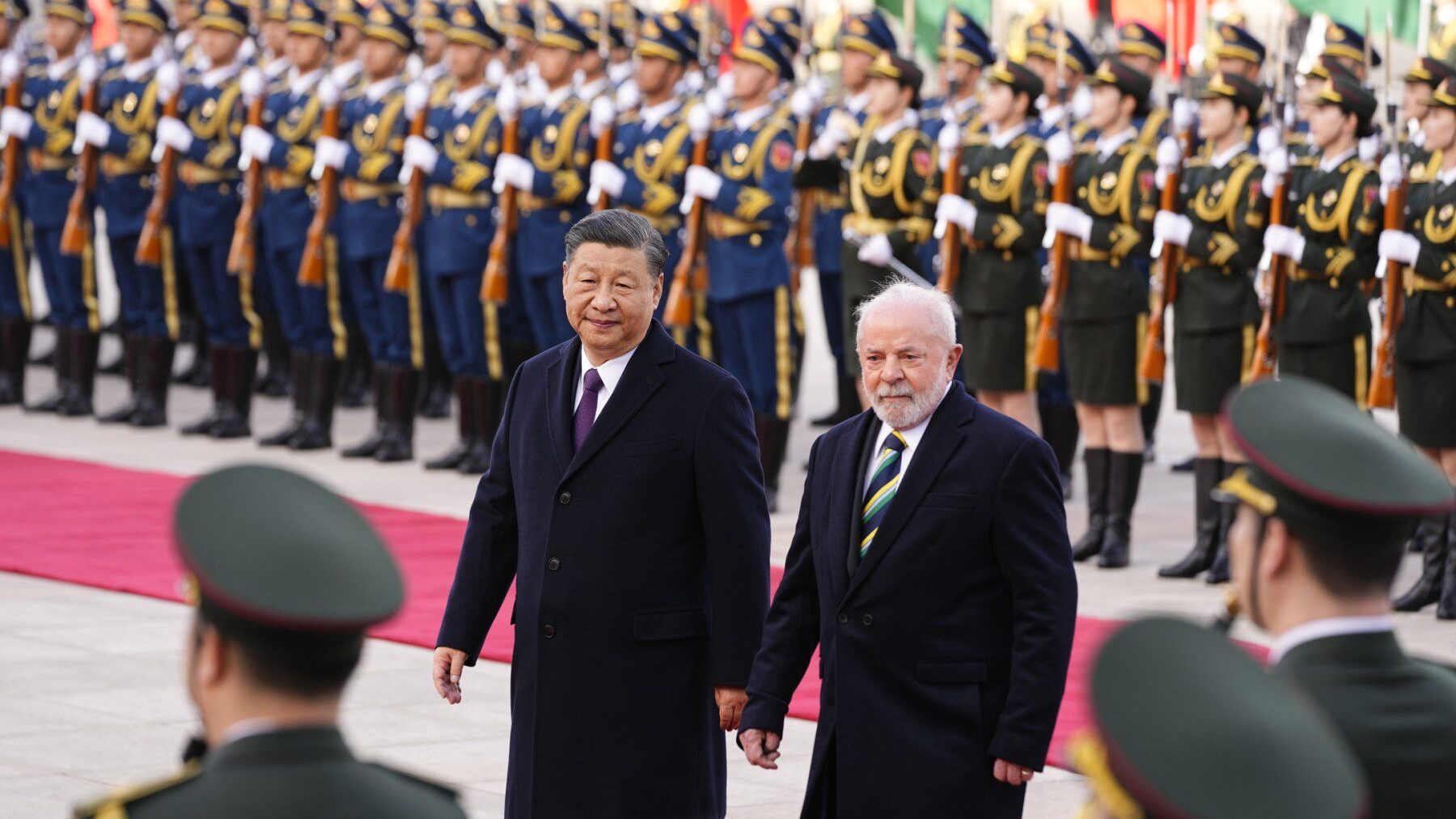
Chinese President Xi Jinping and Brazil’s President Luiz Inacio Lula da Silva attend a welcome ceremony at the Great Hall of the People in Beijing.
Photo: KEN ISHII / AFP
China will expand and deepen its cooperation with Brazil. Chinese President Xi Jinping told his Brazilian counterpart, Luiz Inacio Lula da Silva, that Beijing has made relations with Brazil a diplomatic priority, Chinese state media report.
Lula was received by Xi in Beijing on Friday, April 14th, as part of his three-day state visit to China. The last time Lula (77) and Xi (69) met, in early 2009, the Brazilian president was at the height of his power, halfway through his second term as president.
In their conversation, Xi hinted that he sees opportunities for increased cooperation in various sectors. Agriculture, energy, and infrastructure construction would be the most likely candidates.
On Twitter, Lula said that he had signed agreements to “advance in areas such as renewable energy, the automotive industry, agribusiness, green lines of credit, information technology, health and infrastructure.”
Bom dia, Brasil! Assinei agora com o presidente Xi Jinping acordos entre nossos países, para avançarmos em áreas como energias renováveis, indústria automotiva; agronegócio, linhas de crédito verde, tecnologia da informação, saúde e infraestrutura. 🇧🇷🤝🇨🇳
— Lula (@LulaOficial) April 14, 2023
📸: @ricardostuckert pic.twitter.com/NQmW9WS2Lh
In Xi’s view, China’s rapid development would “unlock new opportunities for Brazil,” both geographically and demographically the largest country of South America, and indeed, “countries around the world.” By working together in this manner, they could also benefit from China’s technological progress, Xi said.
The two leaders also discussed the war in Ukraine, in which both countries have positioned themselves as neutral parties. Lula and Xi agreed that dialogue and negotiations are the only way to bring about a peaceful resolution.
Following a postponement due to a bout of pneumonia, on Wednesday, April 12th, Lula arrived in Shanghai, his first visit outside the Americas since being re-elected as president last year.
“We have an extraordinary relationship with China, a relationship that every day gets more acute and stronger,” the Brazilian president said before his meeting with Xi, adding that it should not be merely of commercial interest.
Both nations, partly through the BRICS alliance of emerging economies of which they are both members, aspire to make their vision of a “multipolar” world a reality, one in which the U.S. is but one among several superpowers.
To that end, while speaking at the New Development Bank in Shanghai, also nicknamed the “BRICS bank,” Lula made an impassioned plea for the replacement of the U.S. dollar with other currencies for use in international trade.
Members of the BRICS alliance—which in addition to Brazil and China includes Russia, India, and South Africa—should come up with their own alternative currency for use in trade, he argued, remarking that “every night” he asked himself “why all countries have to base their trade on the dollar.”
